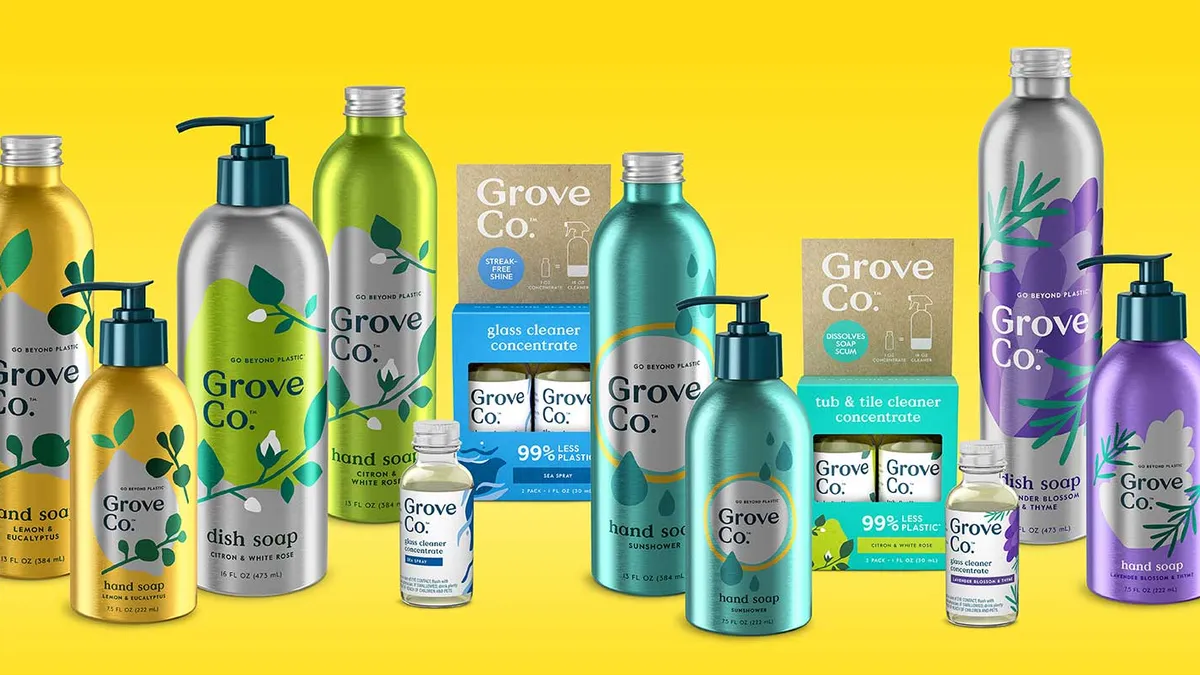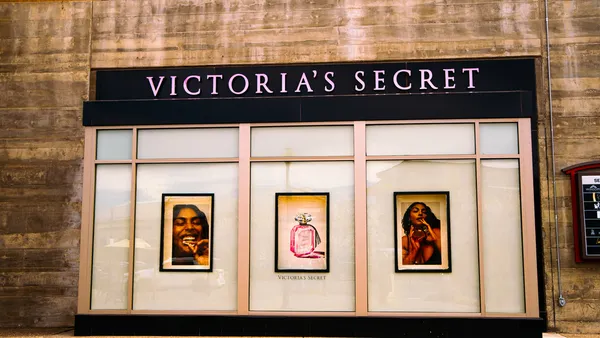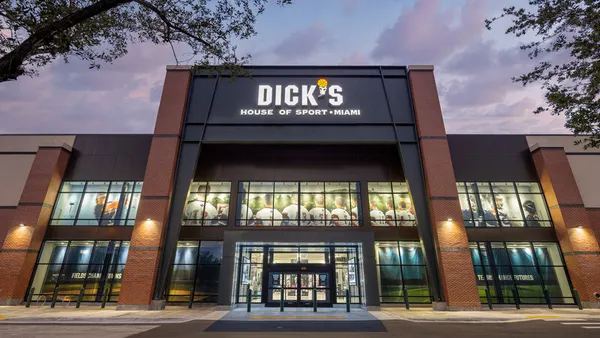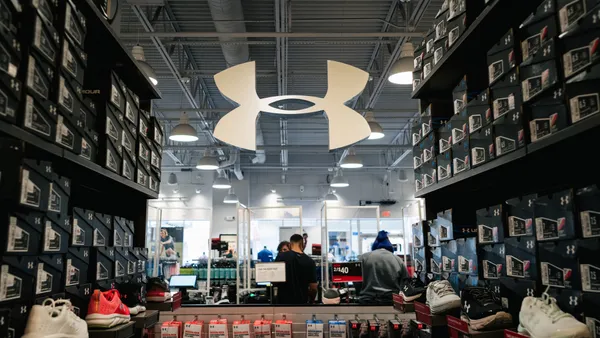Dive Brief:
-
As part of a “multi-year turnaround journey,” Grove Collaborative will exit partnerships with brick-and-mortar stores. Grove will conclude current contracts and sell existing inventory through early next year, per its Q3 press release.
-
The wholesale channel constitutes less than 4% of Grove’s business “and has been consistently unprofitable,” CEO Jeff Yurcisin told analysts Tuesday. In Q3, the channel undermined growth by about 300 to 330 basis points compared to Q2, he said.
-
The sustainability-focused consumer products company has sold in Target stores since 2021; Kohl’s, Meijer, Giant Eagle and CVS stores since 2022; and Costco, Kroger, Hannaford, Walmart and Amazon since 2023. The brand will continue to sell on Amazon, Yurcisin said.
Dive Insight:
Grove is swimming against the tide in DTC.
Many, if not most, direct-to-consumer brands have realized that wholesale partnerships, rather than being an obstacle, are actually key to sales and margins. But for Grove, “brick and mortar has been a real headwind,” according to Yurcisin.
“I've worked in e-commerce for over two decades, and it excites me to know that Grove is getting back to the fundamentals of direct to consumer, centering our customer in everything we do, building a brand that is meaningful in their everyday life and reaching them through channels that are strategic and efficient,” he said. “We want to create that emotional connection and loyalty so that we truly matter in their life, which comes from understanding their needs and meeting those needs, not from being an omnichannel company.”
Any loss from ditching the retail partnerships is expected to be offset by the company’s strength in DTC, he also said. Compared to last year, however, DTC total orders were down 22.8% and the number of DTC active customers tumbled 30.4%, “impacted by lower advertising spend,” per the company’s press release.
Indeed, this latest tactic in the company’s turnaround comes amid further declines in the third quarter. Net revenue in the period fell nearly 22% year over year, driven by fewer repeat orders. Gross margin contracted to 53%, from 53.9% in Q2 and 53.8% last year. The elimination of certain customer fees and lower margins from increased sales of third-party items drove the year-on-year decline.
But as the company has zeroed in on cost-cutting, including a move to Shopify from its custom site, net loss narrowed drastically to $1.3 million, from nearly $10 million a year ago.
In Q3, Grove received a $15 million private investment in public equity from Volition Capital, a little over a year after another Volition investment of $10 million. This is allowing the company to pay down its outstanding term debt facility: Yurcisin said that, after making a $42 million voluntary payment in Q3, Grove will pay off the remaining $30 million of its outstanding term debt facility, leaving only $7.5 million in debt under an asset-based loan facility.















